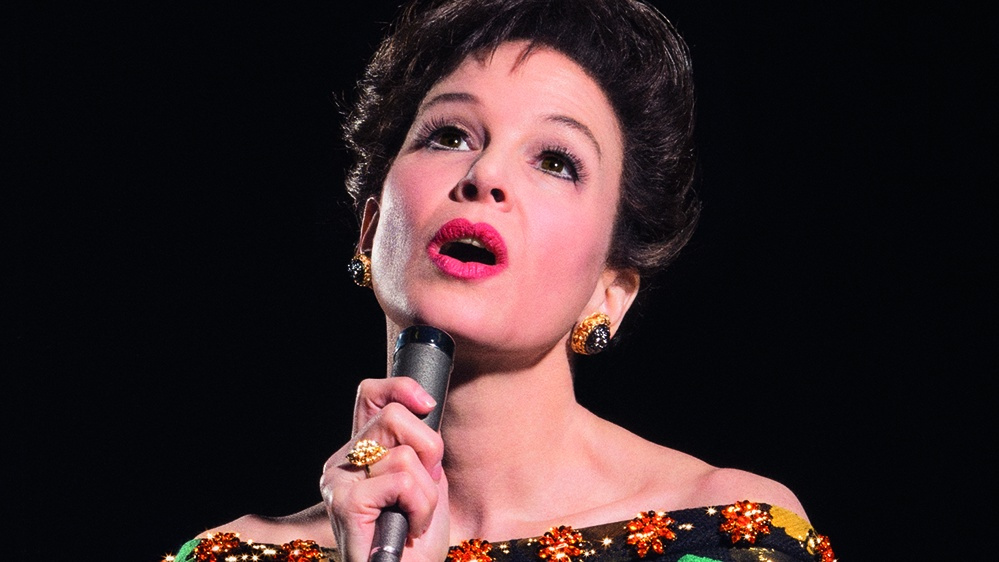Judy Review
I did not expect to like this film, I ended up loving it. Now, I won't be happy unless Renée Zellweger wins an Oscar.

Judy is the biography of Judy Garland during her ‘Talk of the Town’ tour of London in 1969 as she aims to resolve her financial problems. Garland, of course, made her fame from staring as Dorothy in The Wizard of Oz (1939) but in this film we learn more about her and, specifically, her problems. Judy is such a troubled soul, who has been through so much torture, pain and disappointment throughout her life.
Renée Zellweger plays Judy Garland in a masterful and defining performance. This is Zellweger’s year and she will win the Best Actress Oscar for her best outing yet. I was floored by Zellweger in every way – her singing is incredible, her acting superb and her presence is beyond empowering. She won as Oscar for Cold Mountain (2003), and is perhaps best known for her roles in the Bridget Jones films or Chicago (2002) – but, this is her finest moment.
In this film, Judy is broke and down on her luck. Her money has dried up and she’s essentially homeless, meaning she can’t care for the one thing she adores most in this world – her children. In order to make the money to get herself a home and, more importantly, look after her son and daughter she sets off for the UK to lead a run of concerts. She is told that her appeal in the US is perhaps past its sell by date, and the UK is the only remaining major market where she still has a great deal of goodwill. Judy’s motivations throughout the film are so transparent and so clear, yet still endearing. She just wants to do whatever it takes to be with her children. She is not after money for vanity purposes nor is she interested in rejuvenating her career or fame. Judy views herself as a mother, regardless of how so many others may perceive her from her notoriety.
Throughout we get brief glimpses and flashbacks of Judy Garland’s early life. I, personally, didn’t know much about her except for her being the lead in The Wizard of Oz. However, we see that, ultimately, Judy was exploited and abused from as young as 14 years old. Garland was given amphetamines (appetite suppressants) as they didn’t want her to gain weight during shooting. This is insanity – how can someone be so cruel to someone so young? For Garland, this impacted her at the time meaning she couldn’t do something as simple as eat a burger on a date and later in life, with these issues apparent when she’s in London.
Judy is suffering from sleep deprivation and has turned to alcohol and substance abuse to help cope with this. The price of childhood fame is rich, but so too are the consequences of those who mistreated her. Her abuse issues mean her performances across the shows are erratic and unpredictable, they swing like a pendulum from showstopper to stopping the show altogether.
Indeed, things appear to have caught up to Judy. She breaks down at one show completely and is subsequently examined by a doctor. She reveals she’s had a tracheotomy and aside from her voice not being as potent as before, she is suffering from anxiety too. The doctor states she is mentally and physically exhausted and has to take better care of herself. The real tragedy, however, is that Judy has been mentally and physically burnt out for so long. In another flashback scene we see that she’s tired during shooting as a child and isn’t given proper breaks or time to recover.
This film is well crafted, with a nice blend of big musical numbers that bring out some classics and some touching, more intimate moments. I won’t give away too much, but there’s a beautiful scene where Judy spends some time with her fans which is incredibly sweet. Since this is very much a protagonist-centric film, mainly Zellweger’s performance will get the praise but I can assure all the elements across the board are solid. Look, I’m a dude – and even I was impressed by the wardrobe and dresses in this film.
I’m a big, big, fan of this film and I would urge everyone to check it out. It’s heart-breaking to see such a sad story about someone who endured a lot from a young age. Judy does find some closure within herself at times, but she remains such a troubled and traumatised individual. Judy’s banter with the audience is funny but, at times, painful. But perhaps both these emotions are felt when she asks “you won’t forget me, will you?”